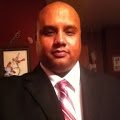As part of my leadership styles interview series, I’m happy to now feature the author and international leader, Kimanzi Constable.
[stextbox id=”custom”] Kimanzi Constable is an author who self-published two books that have sold over 80,000 copies. His first published book (Are You Living or Existing) releases May 1, 2013. He’s a consultant who works with companies worldwide on how to effectively connect with people through social media as well as an international speaker who teaches audiences all over the world how to stop existing and how to truly live. His mission is to help people live the full and abundant life they truly deserve to live. Be sure to follow him on Twitter, Facebook, and LinkedIn.[/stextbox]
Kimanzi Constable is an author who self-published two books that have sold over 80,000 copies. His first published book (Are You Living or Existing) releases May 1, 2013. He’s a consultant who works with companies worldwide on how to effectively connect with people through social media as well as an international speaker who teaches audiences all over the world how to stop existing and how to truly live. His mission is to help people live the full and abundant life they truly deserve to live. Be sure to follow him on Twitter, Facebook, and LinkedIn.[/stextbox]
Leadership Styles
Each of the leaders featured in my leadership styles interview series was asked to provide his or her own unique answers to seven specific questions. Kimanzi’s answers are located below. Be sure to leave a comment at the end of this article about which of his answers you found most fascinating…and why.
- How do you personally define leadership?
- In your opinion, what makes a successful leader stand out from the crowd of mediocrity?
- What was the defining moment(s) in your life that caused you to focus on personal development in order to become a more effective leader?
- Which areas of personal growth are your main strengths and which are your weaker ones?
- What habits have you included in your daily routine to strengthen your leadership skills?
- If you could travel back in time and speak with your “younger self, what would you encourage your “younger” self to change, alter or focus on more?
- What advice would you give to someone who wanted to become a more influential leader in their niche or organization?
 1) How do you personally define leadership?
1) How do you personally define leadership?
Leadership to me means stepping up when no one else will. It means stepping up when no one is willing to follow, you just do it because you know it’s right. It means not being the echo of someone else, being who you uniquely are and using your skills and ability to help others better their lives.
2) In your opinion, what makes a successful leader stand out from the crowd of mediocrity?
A successful leader is one who helps people accomplish amazing things without seeking to be recognized. Their goal is to help people or organizations in any way they can. Adding value is their main motivation.
3) What was the defining moment(s) in your life that caused you to focus on personal development in order to become a more effective leader?
Three years ago I finally decided enough was enough. I had been in a job and life that could be best described as “existing” and I wanted to truly live. I decided to self-publish a book that showed people that you can live the life of your dream, you don’t have to settle. From that moment on I have dedicated my life to truly helping people.
4) Which areas of personal growth are your main strengths and which are your weaker ones?
My main strength is teaching and training people to figure out their dreams, make important changes and make all of them a reality. The area I most struggle with is time management, it seems there’s never enough time.
5) What habits have you included in your daily routine to strengthen your leadership skills?
I make sure to keep educating myself by reading blogs, and books, watching webinars and taking courses. I also practice servant leadership where ever possible.
6) If you could travel back in time and speak with your “younger self, what would you encourage your “younger” self to change, alter or focus on more?
I would tell myself that life is short and you can’t settle, that time is one resource that you’ll never be able to get back, so don’t waste it. I would tell myself to focus on how I could make an impact, spread a message and start a movement of change.
7) What advice would you give to someone who wanted to become a more influential leader in their niche or organization?
I would tell them to figure out their own voice, don’t try and copy another great leader you saw. Once you figure out who you are and what your message is, truly identify who you’re talking to because your message won’t be for everybody. Be the servant, be willing to step up and do the task others aren’t willing to do because you’ll make an impact without even knowing.


Kimanzi, thanks for this interview. It’s helpful to see how people define leadership. I appreciate you and your willingness to do this interview!
Thanks for having me.